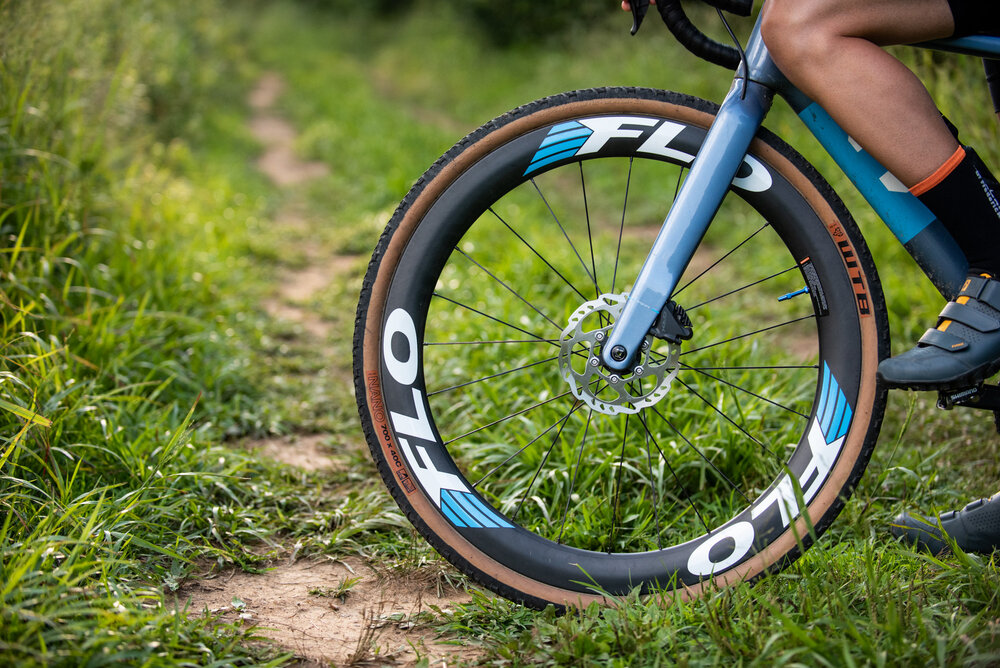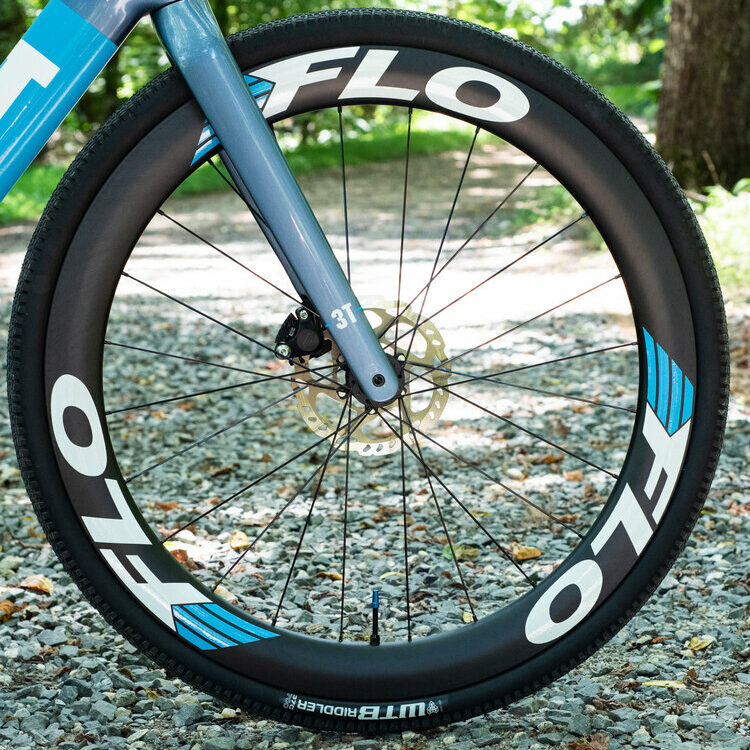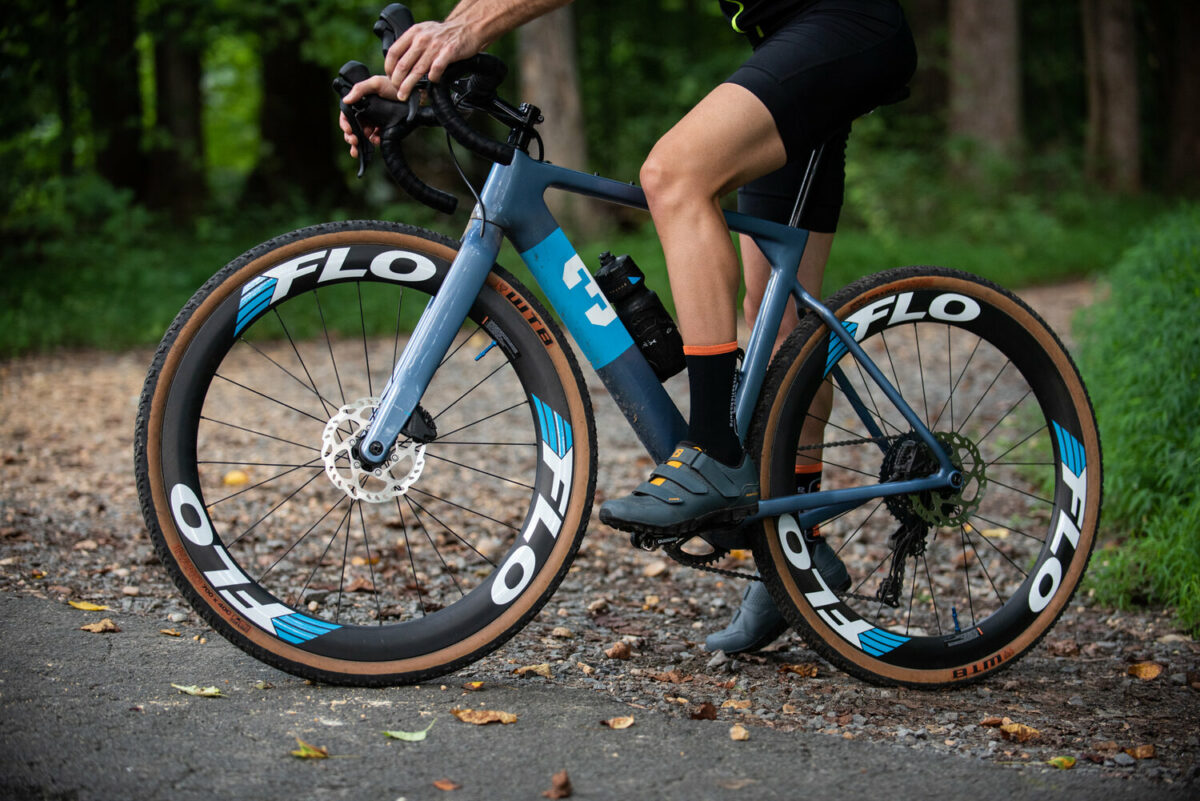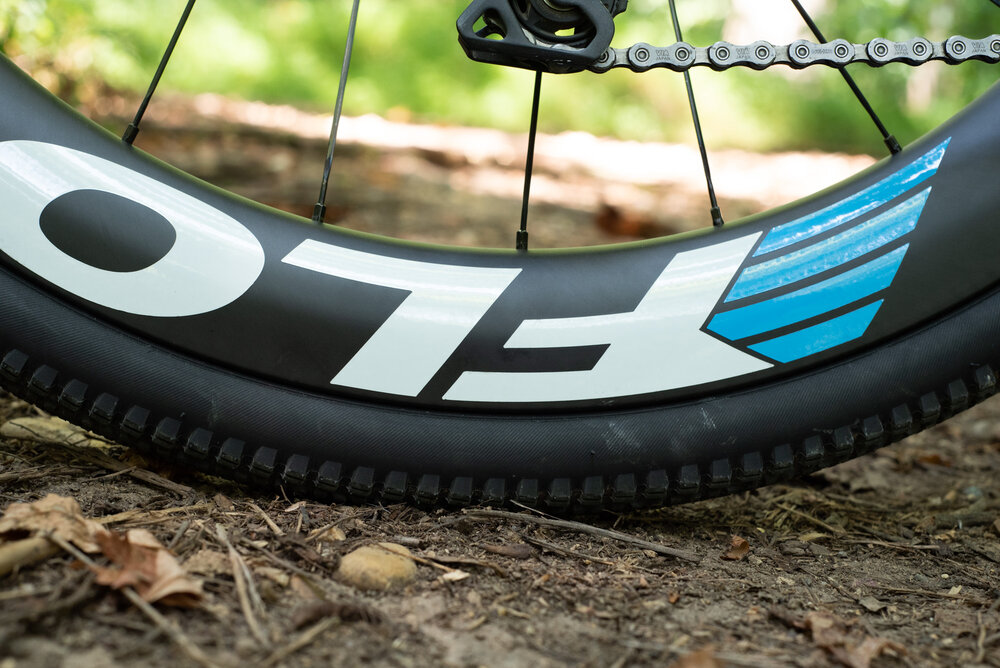Why are there two wheel sizes in gravel cycling? What is the difference between a 700c and 650b gravel wheel? Why do both fit on a gravel bike? Why would you pick one over the other when gravel riding? If you’ve ever wondered why for any of these questions then this article is for you.
The FLO Gravel wheels – the G700 and G650 – were designed from the ground up for specific gravel riding. Let’s dive in and explore the differences between the wheels and why you would pick one over the other and maybe even both.

What Does 700c and 650b Mean?
In short, wheel size. Let’s start with the basics. What does 700 and 650 mean? What does the “c” and “b” mean from 700c and 650b?
Originated in France, there was a naming standard for rim sizes. The numbers 700 and 650 were an estimate of the outside diameter of a tire when it was inflated in mm. The letters “c” and “b” referred to the rough width of a tire. The widths ranged from “a” through “e”.
Today, the European Tire & Rim Technical Organization (ETRTO) adopted the naming convention but only selected a few rim sizes for tire manufacturers to make tires. The rim diameter size is now based on the bead seat diameter which is the diameter of the bead of the tire (the internal diameter), not the outside diameter.
A 700c wheel has a bead seat diameter of 622mm and a 650b wheel has a bead seat diameter of 584mm. So today, the numbers and letters are nothing more than a hold over naming convention for bead seat diameters.
Do Both 700c & 650b Wheels Fit On A Gravel Bike?
Most gravel bikes accept both 700c and 650b gravel wheels. This is different than a mountain bike. Mountain bikes are generally either one size, a 29er or a 27.5. The same goes for road bikes. All road bikes are generally 700c with a few older bikes being 650c. The wheels, however, are not interchangeable between these bikes.

Why Can You Put Two Wheel Sizes On A Gravel Bike?
The story I’ve been told is that the brilliance originally started with Gerard Vroomen. Gerard designed a bike at his company Open Cycles and came up with the idea to allow for two wheel sizes. What’s clever is that the 700c wheels use smaller tires than the 650b wheels. As a result, the outside diameter is generally the same, which makes the wheels easily fit the same frame. The other move Gerard made was to create a very wide fork and rear triangle to allow for wide tires.
The Key Differences & Reasoning For Picking A 700c vs 650b Gravel Wheel
Shock Absorption
When thinking of wheel selection, it is important to first consider the bike. A gravel bike is much more like a road bike than a mountain bike, therefore, it has no suspension. Any vibration management has to come from the tires and frame. This is a key factor in deciding what wheels are best. Tire sizes for the two wheels are estimated below.
700c 32-42
650b 42-50
The larger the tire, the more shock absorption you get. So, terrain is a key factor when deciding which wheel to choose. If you are riding a race that is 80% pavement with packed gravel you would want to choose a 32mm tire on a 700c wheel like the G700. It’s fast and stable enough to get you through the gravel with almost no need for shock absorption.
If you are on a 100% gravel race with moderate gravel, then a 700c wheel with a 37mm tire would be a good choice to help mitigate the vibration.
If you are racing on rough gravel with exposed features, then a 650b like the G650 with a 48mm tires starts to make a lot of sense so that you are able to manage the vibration.

Gravel Type
The type of gravel also matters. Gravel can be large or small, loose or packed, dry or wet and even sticky. The more like pavement the more likely you’d choose a 700c with a smaller tire. You can change your tread to match the need of the terrain. The looser, larger, wetter and/or stickier to more you’d lean toward a larger tire and a 650b.

Is A 700c or 650b Gravel Wheel Best For You?
Ultimately, it depends on the terrain you ride. Geographically, you get very different things. The deserts of Las Vegas are much different than the wooded trails of Georgia. You may live in an area where both wheels make sense or you may only need one.
Your event is also important. A 700c wheel is faster than a 650b. Aerodynamically, we are able to make them faster because of the smaller tire size and rim diameter. While both the G700 and G650 will save you 11 watts over box rim gravel wheels, the 650b size wheel still requires more watts to spin. If you are racing for speed then then a wheel like the G700 is your best bet. If you are in tough terrain and are thinking about a 650b size wheel, then our rule of thumb is to first look at tire options on a 700c wheel before committing to a 650b size wheel. If tires don’t get the job done, then by all means, pick the 650b gravel wheel and the tire combo that matches the terrain you’re on so you can be your fastest.
If you are not racing and want a plush ride with lots of grip the G650s are awesome. I’ve even taken the G650‘s with 47mm tires on road rides, which is a really fun ride. They are fast and you feel like you’re riding in a Lincoln Town Car.
Final Thoughts
Serious gravel riders will have both sets of wheels with tires to match the type of terrain. If you are only looking for one set of wheels, I’d go with a 700c wheel, especially when coming from road cycling. Those who are used to rougher terrain and are coming from mountain, a 650b wheel can make a lot of sense. We also recommend you take a look at our G700 and G650. They are the world’s first gravel specific wheel designed with a deep profile for aerodynamic efficiency and wide internal rim width for great rolling resistance.

Co-founder at FLO Cycling. Jon manages the day to day operations and acts as the lead engineer for all FLO products.
